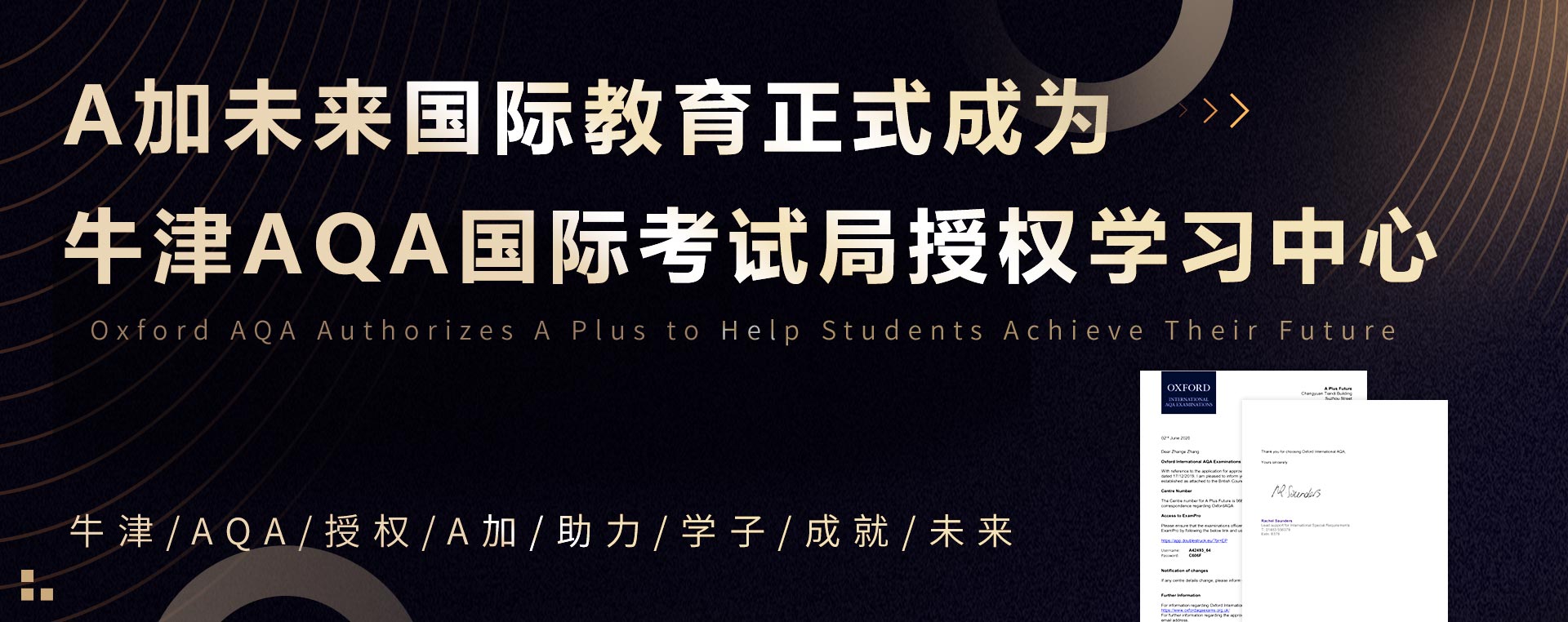AP经济学必须要掌握的13个要点总结
经济、商科等相关专业作为赴美留学申请中选择最多的专业方向,很多同学们都会学习AP经济学来帮助自己打好专业学习的基础,并为大学专业申请带来更多的优势。今天A加未来小编带大家一起来盘点一下在AP经济学考试中所需要掌握的13个重要的知识点要点内容,一起来看看吧!

AP考试经济学有两门独立的考试:一是微观经济学,二是宏观经济学。微观经济学与宏观经济学课程考试各需要两个小时十分钟。每门考试都包含70分钟的多项选择部分和60分钟的自由回答题部分。自由回答题目中的某些问题需要进行图形分析。在开始自由回答之前,必须先利用10分钟阅读材料,这段时间内,建议学生仔细阅读每个题目、绘图、做笔记、打草稿。之后的50分钟才用来答题。多项选择题部分占学生考试得分的2/3,自由回答题部分占余下的1/3。每门考试设立的对象,都是有志于在高中阶段完成大学第一学期入门课程学习的有条件的学生。下面给同学们带来的ap经济学考试中的13个要点,希望对大家的ap经济考试有所帮助。
1.Fundamentals of Economic Analysis
Scarce Resources
Production Possibilities
Functions of Economic Systems
2.Demand,Supply,Market Equilibrium,and Welfare Analysis
Demand
Supply
Market Equilibrium
Welfare Analysis
3.Elasticity,Microeconomic Policy,and Consumer Theory
Elasticity
Microeconomic Policy and Applications of Elasticity
Consumer Choice
4.The Firm,Profit,and the Costs of Production
Firms,Opportunity Costs,and Profits
Production and Cost
5.Market Structures,Perfect Competition,Monopoly,and Things Between
Perfect Competition
Monopoly
Monopolistic Competition
Oligopoly
6.Factor Markets
Factor Demand
Least-Cost Hiring of Multiple Inputs
Factor Supply and Market Equilibrium
Imperfect Competition in Product and Factor Markets
7.Public Goods,Externalities,and the Role of Government
Public Goods and Spillover Benefits
Pollution and Spillover Costs
Income Distribution and Tax Structures
8.Macroeconomic Measures of Performance
The Circular Flow Model
Accounting for Output and Income
Inflation and the Consumer Price Index
Unemployment
9.Consumption,Saving,Investment,and the Multiplier
Consumption and Saving
Investment
The Multiplier Effect
10.Aggregate Demand and Aggregate Supply
Aggregate Demand
Aggregate Supply
Macroeconomic Equilibrium
The Trade-off Between Inflation and Unemployment
11.Fiscal Policy,Economic Growth,and Productivity
Expansionary and Contractionary Fiscal Policy
Difficulties of Fiscal Policy
Economic Growth and Productivity
12.Money,Banking,and Monetary Policy
Money and Financial Assets
Fractional Reserve Banking and Money Creation
Monetary Policy
13.International Trade
Comparative Advantage and Gains from Trade
Balance of Payments
Foreign Exchange Rates
Trade Barriers
以上就是A加小编关于AP经济学考试要点的总结,希望同学们在备考期间一定要确保自己能够完全掌握这些概念知识,并做好练习和训练。更多AP考试问题,欢迎随时咨询我们!
A加未来国际教育作为国际课程辅导中心(A-level、IGCSE、IB、AP等国际课程),是中国最专业、最值得信赖的国际课程学习中心,是中国学生通往海外顶尖名校的桥梁。详询:010-53666608(海淀校区),010-53608896(国贸校区)
 喜欢 [0]
喜欢 [0] 相关推荐

- 解锁留学双保!1000字指导你留学美国!”
知识点 2024-04-23

- 受疫情影响AP考试取消,出国留学怎么考试?
知识点 2022-06-06

- AP课程解读,考生如何备考?
知识点 2022-06-06

- AP的物理1、物理2和C之间的知识点有什么样的区别
知识点 2021-09-23










